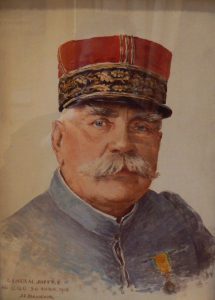
Finest Hour 182
Books, Arts & Curiosities – Impatient Patient

January 17, 2019
Finest Hour 182, Fall 2018
Page 46
Review by Katherine Anne Carter
Jill Rose, Nursing Churchill: Wartime Life from the Private Letters of Winston Churchill’s Nurse, Amberley Publishing, 2018, 286 pages, £18.99. ISBN 978–1445677347
Katherine Anne Carter is Project Curator and Collections Manager at Chartwell.
The prospect of another medical history of Churchill is one we might initially approach with caution. A previous history of Churchill in this vein was said to be a breach of patient confidentiality and remains contentious to this day. So how does Nursing Churchill compare?
From the outset, it is clear that the intentions of Doris Miles, the woman who nursed Churchillback to health from life-threatening pneumonia in 1943, were very different from other authors’, including those rumoured to have written notes on their sleeve-cuffs during time spent with the patient so as to write up memoirs at a later date. Miles’s letters were intended as a private correspondence, but through this book her words and memories of her time with Prime Minister Churchill have been preserved and can now be shared. Author Jill Rose is the daughter of Miles, and she approaches the subject with due care and sensitivity. Rose cleverly moves from introducing Churchill to describing international events, outlining their impact on the home front, and then relaying how the unique circumstances of war positioned her mother at the ready when Churchill’s physicians sought out skilled nursing care to aid his recovery.

2024 International Churchill Conference
One reservation, however, is the detail given to Doris’s ancestry, upbringing, and her immediate circumstances leading up to her appointment as Churchill’s private nurse. Whilst her story is remarkable in its own right, it is too lengthy for a work entitled Nursing Churchill (approximately 150 pages)before our two protagonists, Miles and Churchill, first encounter each other.
When nurse and patient do meet, we are given a glimpse of a Churchill few chroniclers can account for, yet it is reassuring to know that, even in a time of illness and vulnerability, he was still “all he is cracked up to be.” From this point on, the completely unique and quite extraordinary letters chart not only Churchill’s illness but also the relationship that developed between the two.
Insights into the great man during his recovery and convalescence range from his treatment to his day-to-day life: from the lack of pyjamas and the sponge-baths to the check-ins from Clementine and doomed attempts to moderate his diet with Ovaltine. Champagne was always going to win the day, appearing consistently at the top of his “fluid intake” charts. The relationship developed, and Miles records discussing with her patient the progress of the Beveridge Report (seen by many as the foundation stone of Britain’s National Health Service) as well as the progress of the war.
What really makes this book compelling is the insight into Churchill the patient. Characteristically, he displays humour with occasional tantrums. Churchill also mixes a determination to KBO (Keep Buggering On) with a genuinely caring nature, which is embodied in Miles’s recollection: “the whole time he treated me more as an intimate friend than a nurse.” Though their time together was just a few weeks, it was a crucial time in terms of Churchill’s health and Miles’s career. Her diligence and care contributed to the war effort probably more than she ever knew. For her dedication and round-the-clock efforts at the vital point in the Second World War, we should all be truly grateful.
Subscribe
WANT MORE?
Get the Churchill Bulletin delivered to your inbox once a month.




